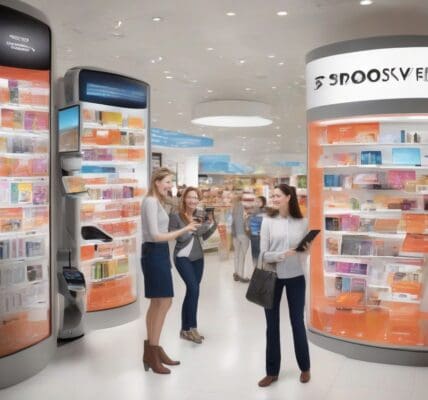In a decisive move amidst ongoing contract negotiations, members of the United Food and Commercial Workers (UFCW) union locals have overwhelmingly voted to authorize their bargaining team to initiate a strike if necessary. This decision currently affects thousands of CVS Pharmacy workers across California and signals a growing discontent regarding labor practices within the company.
The conflict intensified during negotiations that began in May, when the UFCW CVS Bargaining Team sought to establish a new contract. In a statement issued on September 27, the bargaining team expressed their disappointment with CVS, claiming that the company has not engaged meaningfully. “Instead of working with us towards a reasonable contract, our employer would rather disrespect us to our faces, offer proposals that grossly underestimate our value and their wealth, and engage in multiple labor violations,” they stated.
Allegations Against CVS
The union has lodged several serious claims against CVS, including accusations of unlawful surveillance, retaliation against employees for union activities, and restricting workers from communicating freely with their union representatives. These practices, the union argues, undermine not only the legitimacy of the ongoing negotiations but also compromise the welfare of the workers and the communities they serve.
This heightened tension mirrors a broader trend in the retail and service sectors, where labor rights and fair compensation have become hot-button issues. The UFCW has previously highlighted that the average pay for CVS clerks is under $20 an hour, while pharmacy technicians earn around $24.90 after five years of service—far below what many believe is deserved given their training and responsibilities.
The UFCW’s strike authorization vote is not merely a warning but a strategic measure meant to pressure CVS into negotiations that reflect the true value of its workers. “Everyone deserves a wage that reflects their work, and no one deserves to be bullied at their job,” the union asserted, adding that the company’s violations make it difficult for employees to provide the high level of service that their customers require.
Progress on Negotiations
Despite the escalating situation, CVS spokeswoman Amy Thibault emphasized that the company remains committed to reaching a satisfactory agreement. Since the expiration of the previous contract in June, CVS has held multiple negotiating sessions with the UFCW and stated that progress has been made on certain fronts, including qualifying store associates and pharmacy technicians for higher pay rates sooner than before.
However, Thibault acknowledged that these agreements will require final ratification to be effective. The preliminary agreements include a modification of the qualifications for earning CVS’s Top Rate of pay, which previously required six years of service. Under the proposed changes, both store associates and pharmacy technicians will be eligible for this increase after five years, streamlining the path to competitive compensation.
Contingency Plans in Place
Should a strike occur, Thibault has assured that CVS has contingency plans to maintain operations and ensure that customers and patients continue to have access to medications and services. This is particularly relevant in the healthcare sector, where disruptions can have serious implications for patient health and wellbeing.
The next critical session for negotiations is scheduled for October 16. This date will serve as a pivotal point as both parties attempt to bridge their differences and avoid a disruption that could affect thousands of employees and their customers across California. The outcome of this impending negotiation will likely set a precedent for labor relations within the retail pharmacy industry, especially as more employees unionize and demand better working conditions and fair compensation.
Conclusion
The unfolding situation between CVS and its workers represents a crucial chapter in the ongoing labor movement seen across multiple industries in the United States. With public sentiment increasingly in favor of fair labor practices, the actions of the UFCW may resonate well beyond California. As negotiations continue, the outcome may not only impact CVS but could have lasting implications for how retail and healthcare workers are treated in their workplaces.












